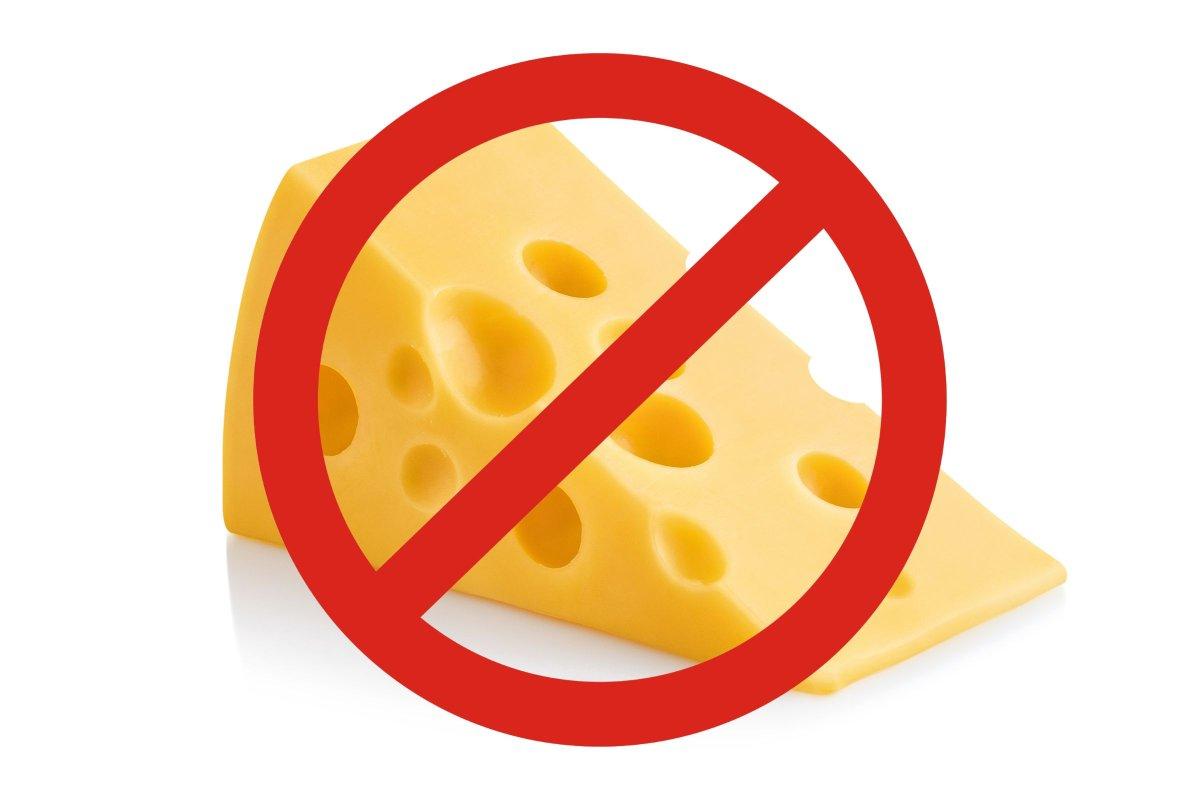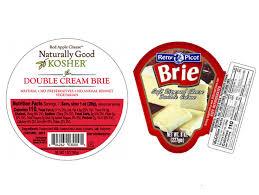Kenny’s Farmhouse Cheese has initiated a recall of their St. Jerome cheese. The recall affects batch 231129, distributed nationwide.
Routine testing detected the presence of Listeria monocytogenes. This recall highlights the importance of food safety monitoring in the dairy industry.
Listeria: A Potentially Fatal Foodborne Pathogen

Listeria monocytogenes can cause serious and sometimes fatal infections. It particularly affects young children, the elderly, and immunocompromised individuals.
The CDC estimates 1,600 listeriosis cases annually in the US. Approximately 260 deaths occur each year due to listeriosis.
Affected Products: Sizes and Packaging Details

The recall covers two sizes of St. Jerome cheese. It includes 8-ounce wedges and 15-pound wheels.
The products are packaged in clear plastic with a logo sticker. Consumers can identify affected products by the lot number 231129 on a white label.
Distribution Channels of the Recalled Cheese

Kenny’s Farmhouse Cheese distributed the affected product through multiple channels. These include wholesale customers and retail storefronts.
The company also sold the cheese through its website. This wide distribution increases the potential reach of the contaminated product.
No Illnesses Reported, But Caution Advised

As of the recall announcement, no illnesses were linked to the product. However, the FDA urges consumers not to consume the cheese.
Customers should return the product for a full refund. Alternatively, they can dispose of it safely.
Listeriosis: Symptoms and Risks for Healthy Individuals

Healthy individuals may experience short-term symptoms from listeriosis. These can include high fever, severe headache, and stiffness.
Nausea, abdominal pain, and diarrhea are also common. Symptoms typically begin within hours or days after infection.
Severe Risks for Pregnant Women and Fetuses

Listeria poses significant risks to pregnant women and their unborn children. It can cause miscarriages and stillbirths.
Pregnant women are about 10 times more likely to get listeriosis. This risk highlights the importance of food safety during pregnancy.
Company’s Response and Additional Product Testing

Kenny’s Farmhouse Cheese has suspended production of St. Jerome cheese. They tested 17 other cheese varieties, all negative for Listeria.
The FDA and the company are investigating the contamination source. This proactive approach demonstrates the company’s commitment to food safety.
Listeria’s Resilience in Food Environments

Listeria thrives in moist environments, including soil and water. It can survive under refrigerated conditions, unlike many bacteria.
This resilience makes Listeria particularly challenging for food safety. It can contaminate a variety of foods, from dairy to produce.
Historical Listeria Outbreaks in Various Foods

Previous listeriosis outbreaks have been traced to diverse food sources. These include raw and unpasteurized dairy products, ice cream, and vegetables.
Processed fruits and deli meats have also been implicated. The largest listeriosis outbreak in US history occurred in 2011, linked to cantaloupe.
Soft Cheeses Most Vulnerable to Contamination

Soft cheeses pose a higher risk for Listeria contamination. The FDA advises pregnant women and immunocompromised individuals to avoid certain soft cheeses.
Queso fresco and other Mexican-style soft cheeses have been linked to multiple outbreaks. Did you know? The first documented cheese-related listeriosis outbreak occurred in 1985, involving Mexican-style cheese in Los Angeles.
Small Producers Face Stricter Regulations

The Food Safety Modernization Act of 2011 imposed new safety standards on cheese makers. Small producers must now implement more rigorous testing and safety protocols.
These regulations aim to prevent foodborne illness outbreaks. However, compliance costs have forced some artisanal cheese makers out of business.
Raw Milk Cheese Debate Continues

The Food Safety Modernization Act of 2011 imposed new safety standards on cheese makers. Small producers must now implement more rigorous testing and safety protocols.
These regulations aim to prevent foodborne illness outbreaks. However, compliance costs have forced some artisanal cheese makers out of business.
Raw Milk Cheese Debate Continues

The FDA requires cheese made from raw milk to age for at least 60 days. This rule aims to reduce pathogen levels through the aging process
However, some artisanal cheese makers argue that this requirement affects traditional cheese-making methods. Did you know? France allows the sale of raw milk cheeses aged less than 60 days, leading to ongoing international trade disputes.
Consumer Awareness Key to Recall Effectiveness

The FDA and CDC use various channels to communicate recall information to consumers. Social media platforms play an increasing role in disseminating recall alerts.
However, studies show that only about 60% of consumers typically hear about food recalls. Did you know? The USDA’s FoodKeeper app helps consumers track recalls and food safety information in real-time.


